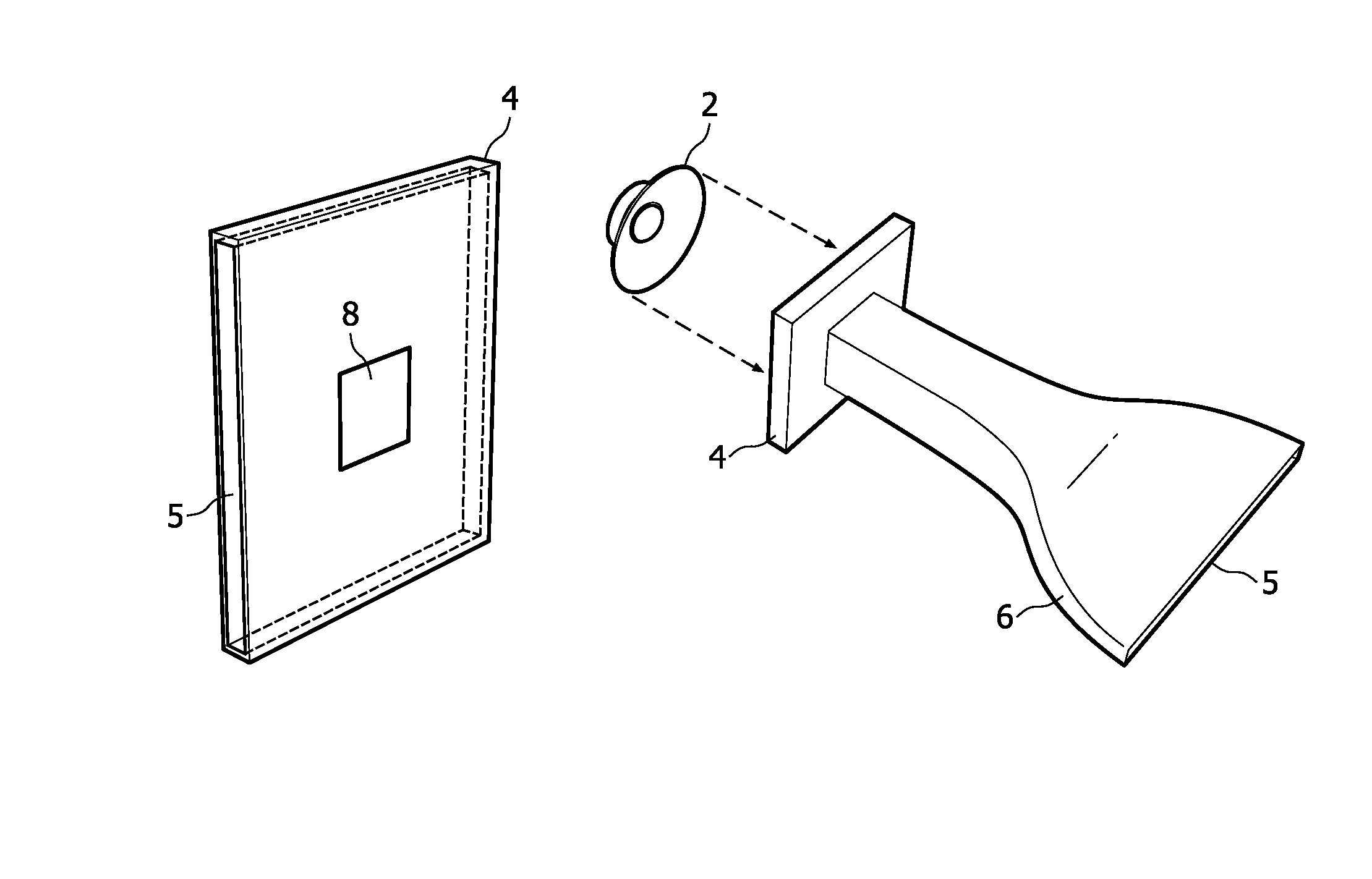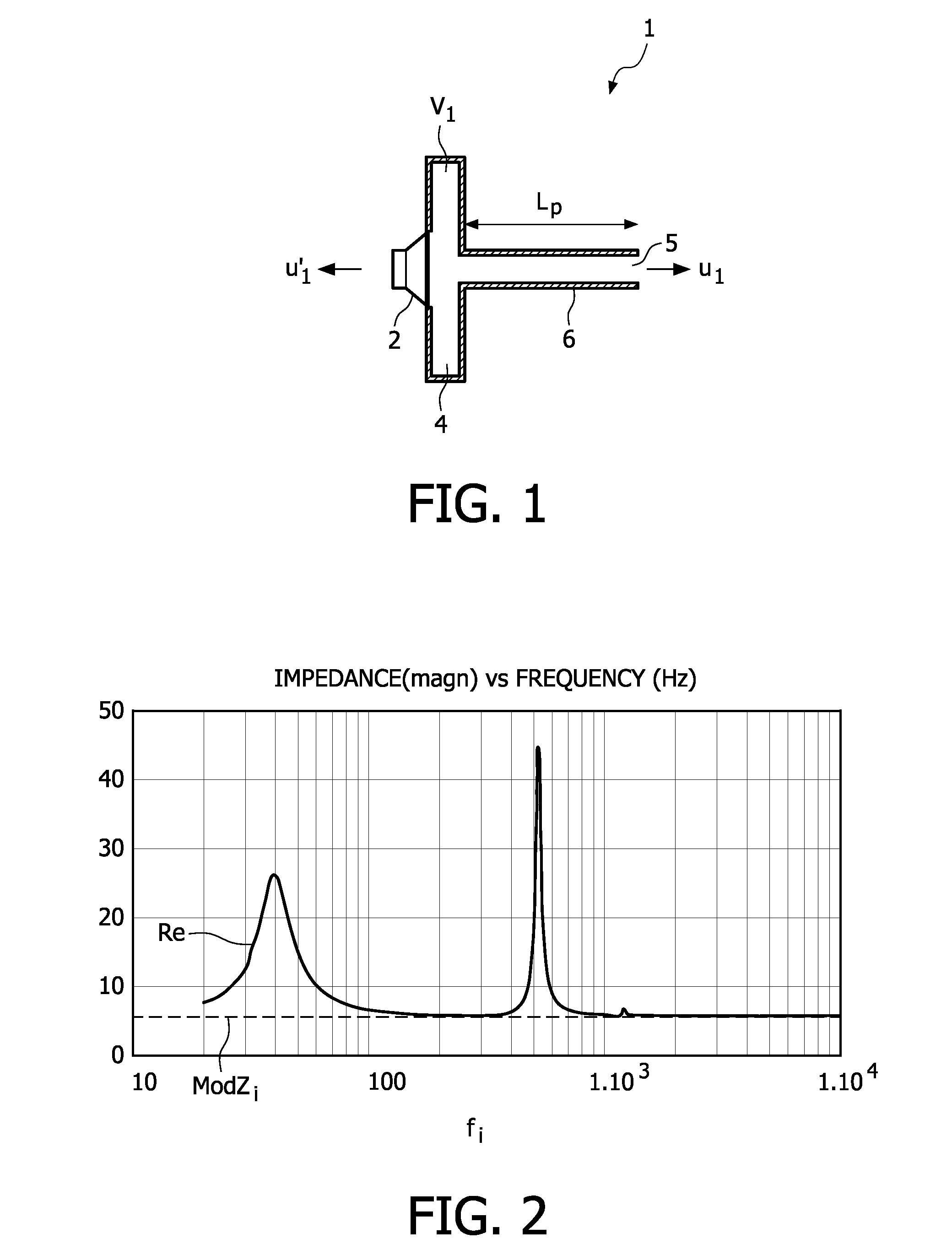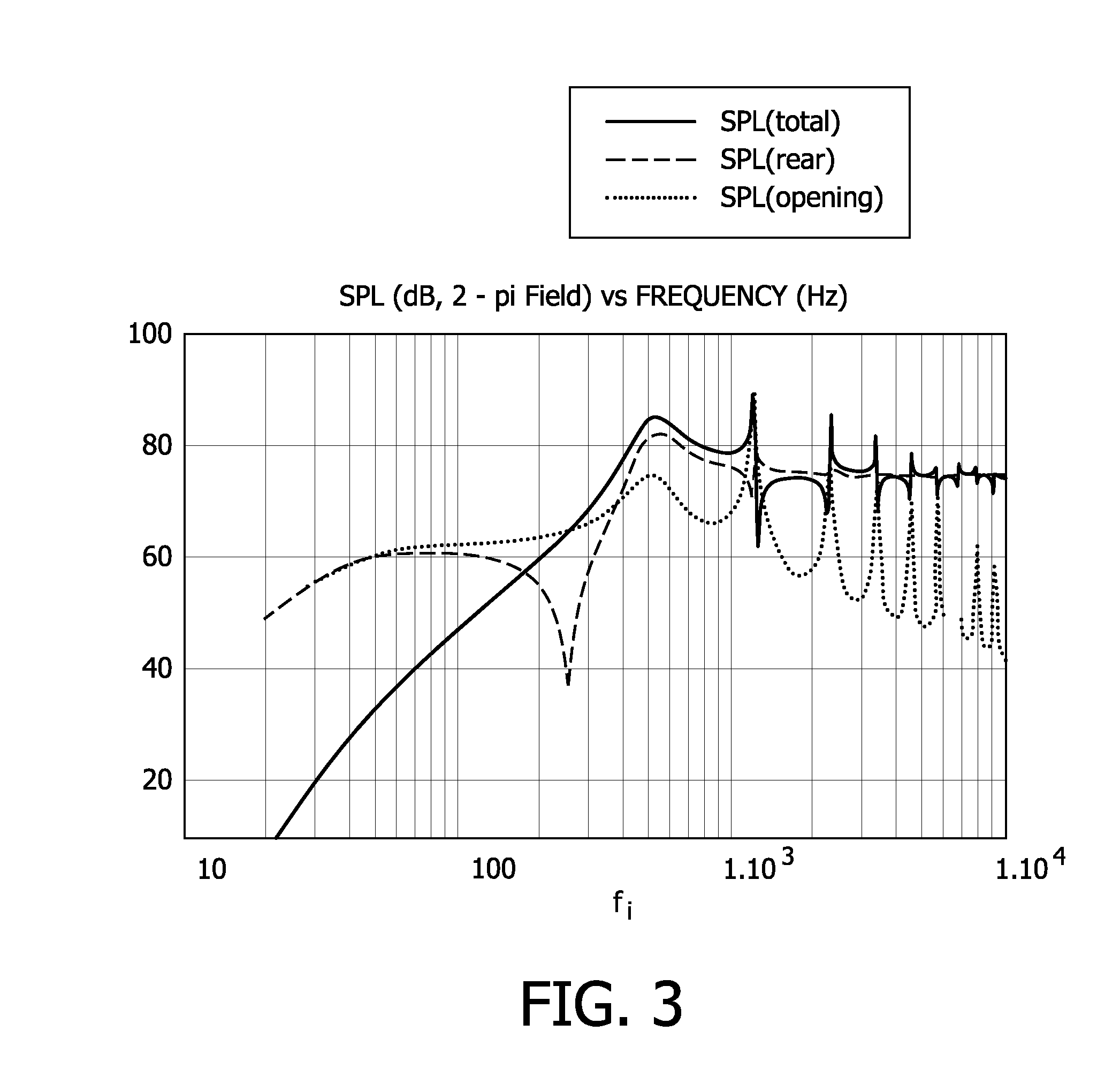Low noise cooling device
a cooling device and low noise technology, applied in the direction of machines/engines, positive displacement liquid engines, light and heating apparatus, etc., can solve the problems of reducing requiring subsonic frequencies or mechanical symmetry to achieve satisfactory noise reduction, and weakening each other's sound waves, etc., to reduce the sound level, reduce the range of applications, and reduce the effect of cos
- Summary
- Abstract
- Description
- Claims
- Application Information
AI Technical Summary
Benefits of technology
Problems solved by technology
Method used
Image
Examples
Embodiment Construction
[0031]The cooling device 1 in FIG. 1 comprises a transducer 2 having a membrane adapted to generate pressure waves at a working frequency (fw). The transducer 2 is here illustrated as a loudspeaker, but is not limited thereto. On the contrary any transducer capable of generating a pressure wave could be used. A cavity 4 is arranged in front of the transducer 2, thereby enclosing a first side of the transducer membrane. The fluid in the cavity 4 is here air. The cavity 4 is in communication with the environment outside the cavity through an opening 5. Furthermore, the opening is in communication with the rear of the transducer (i.e. the side of the membrane facing away from the cavity). The opening 5 is connected to the cavity 4 via a channel 6, having a uniform shape and size throughout its extension, here in the form of a cylindrical tube 6. However, the channel may be in a variety of shapes. For example, the channel may have a rectangular cross-section. Also, the cross-section may...
PUM
 Login to View More
Login to View More Abstract
Description
Claims
Application Information
 Login to View More
Login to View More - R&D
- Intellectual Property
- Life Sciences
- Materials
- Tech Scout
- Unparalleled Data Quality
- Higher Quality Content
- 60% Fewer Hallucinations
Browse by: Latest US Patents, China's latest patents, Technical Efficacy Thesaurus, Application Domain, Technology Topic, Popular Technical Reports.
© 2025 PatSnap. All rights reserved.Legal|Privacy policy|Modern Slavery Act Transparency Statement|Sitemap|About US| Contact US: help@patsnap.com



